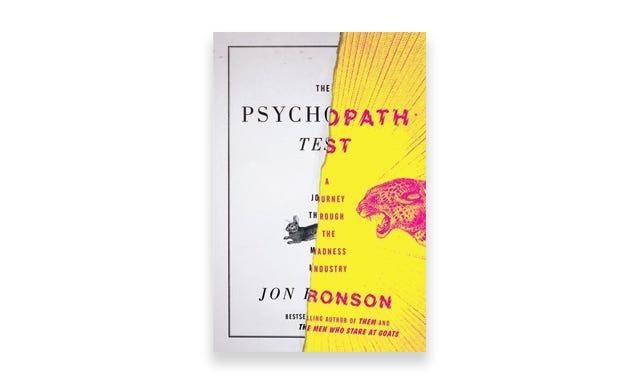Potatoes, Psychopaths, and Moira Rose — is everything OK?
This isn’t strictly book-related, but some things are simply too important to ignore in a crisis.
Hi, everyone!
Public service announcement: OK — so this isn’t strictly book-related, but some things are simply too important to ignore in a crisis.
No, we’re not talking about the distribution of personal protective equipment (PPE) or facemasks — we’re talking about the mighty potato.
We have heard that there is — wait for it (!) — an abundance of potatoes in the supply chain, and that we must eat more fries (chips 🇬🇧) to solve it?!
So, as part of our civic duty, we’re encouraging everyone to eat more fries (chips 🇬🇧), because our potato farmers need our help.
But if you’re looking to get creative, here are 63 ways to cook a potato:
Also, homemade vodka, anyone?
Anyway, now that that’s out of the way, let’s get crackin’, shall we?
First on the docket…
As the Tulips Bloom 🌷

Editor’s Note: Book Banter’s co-founder and chief food writer has been busy this week. Between baking another round of scones and whipping up this week’s edition of Em’s Food for Thought, Em has also found the time to review The Dutch Wife.
What’s it about?
Written by Ellen Keith, The Dutch Wife follows the life of Marijke de Graaf, a woman taken as a political prisoner in Nazi-occupied Amsterdam. Transported to a concentration camp separate from her husband, she is forced to make a choice: work in the camp’s brothel or face certain death.
Why we like it:
Ellen Keith offers up an extraordinary and highly-detailed narrative, painting the horrors of the prisoners who occupied Nazi concentration camps.
Keith also manages to intricately detail the intense survival-driven decisions that the women of the camp’s brothel had to make on a daily basis.
The Dutch Wife is a truly inspirational read with twists, turns, and terrifying decisions, but the novel’s greatest strength lies in its portrayal of its characters’ relentless resilience under extraordinary circumstances.
Second, a fan favourite…
Em’s Food for Thought 🎂
Layered: Baking, Building, and Styling Spectacular Cakes (2016).

Editor’s Note: Em’s Food for Thought, Book Banter’s hugely popular cookbook section, is back for another week. Take it away, Em!
Baking has always been referred to as a “science”. It’s true. But delicious baked goods are the ones that look the most exquisite. As such, baking also provides an outlet for people’s artistic side. However, it can also be incredibly intimidating to make something beautiful, let alone something like a towering cake with an intricate design.
So, where does one start?
Usually, you’d learn from your parents or grandparents by watching them in the kitchen — and that’s how I started baking! But the best teacher — apart from a family member, of course (hi, Mom!) — is a cookbook. And the best cookbook that I’ve ever bought is this one: Layered: Baking, Building, and Styling Spectacular Cakes.
Written by self-taught Canadian baker, Tessa Huff, Layered breaks down complicated recipes into easy steps, allowing even the most amateur baker to create the most impressive cakes. From simple two-layer cakes to tall and skinny cakes to spherical cakes, this book teaches not only the basic techniques to make cakes look professional, but also how to troubleshoot what might feel like potential throw-in-the-bin, cake-ending mistakes.
So, if you’re looking to increase your cake skills, start here. You’ll thank me later. And anyone who receives your creations will thank you, too!
Here is one of the recipes from Layered that I baked a while back. This cake was a chocolate cake with white chocolate ganache and winter peppermint vanilla Swiss meringue frosting. It did not last long after the photo was taken!
Third, “what is the use of a book without […] conversations?”
Mad World, Mad World 💊
The Psychopath Test: A Journey Through the Madness Industry (2012).

What’s it about?
We’ve all met and worked with psychopaths, right? But how can we spot them? How are we able to diagnose them before they do something barbaric or illegal?
It turns out that there is a test for this — it’s remarkably simple: 20 questions of varying difficulty and severity. And it’s by using Dr Robert Hare’s Psychopathy Checklist (PCL) as an entry point that Cardiff-born writer Jon Ronson springboards into what he calls “a journey through the madness industry”.
Why we like it:
Jon Ronson is weird — he’s kooky and quirky, and he always seems to write about strange goings-on. But Ronson is also a best-selling journalist — his investigative stories, such as The Men Who Stare at Goats and Them: Adventures with Extremists, almost always find a way to connect with the normalcy of regular people. And The Psychopath Test is no different. Ronson has found a way to engage with deeply disturbing characters without insulting them or dehumanising them. They’re not monsters — they’re simply people who are defined by their “maddest edges”. It’s in this niche that The Psychopath Test stands above others in the genre.
And, finally, the pièce de résistance…
Word of the Week ⌨️✏️
Few fictional characters can successfully pull off such bombastic flamboyance as Schitt’s Creek’s Moira Rose, who is played by legendary Canadian comedic actor Catherine O’Hara — Home Alone, anyone?
But Moira’s frequent use of sesquipedalian terminology is so creative and fun that we allow ourselves to forgive her verbosity — amirite, Schitt’s Creek viewers? 😏
Nevertheless, this week’s Moira Rose-inspired Word of the Week is katzenjammer, which simply means, “a discomfort or illness experienced as the aftereffects of excessive drinking” — or, as most of us call it, a hangover.
Katzenjammer also means “confusion [and/or] uproar”, as Moira will now demonstrate:
Editor’s Note: Let the record show that the hard-working, puritanical Book Banter team has not experienced a katzenjammer while in self-isolation. The local SAQ (Société des alcools du Québec) is still closed. So, as one team member, who shall remain anonymous — *cough*, Em — has been known to cry, “please send gin!”
That’s it until next week — talk to you soon!
Alexander Jones
P.S. As usual, we’d love to hear your feedback — and what you’re reading! So, if you want to get involved — either by writing reviews yourself or by suggesting books for us to cover — drop us a line by replying directly to this newsletter or by commenting beneath a post on BookBanter.Substack.com. And if you feel inclined to do so, why not share Book Banter with other reading fans — click this button to pass it on:




